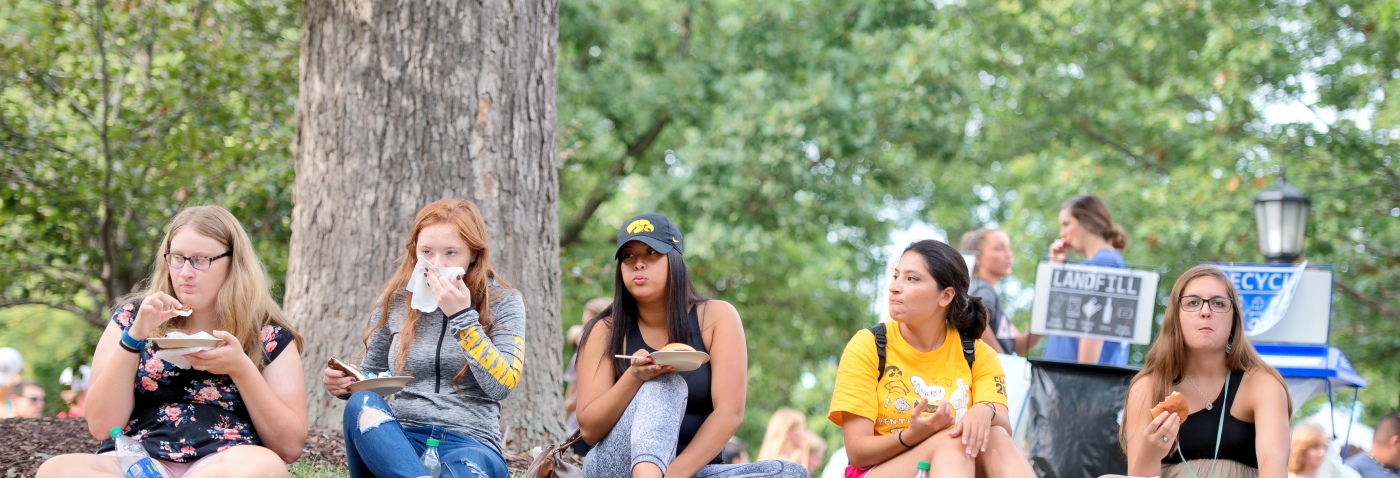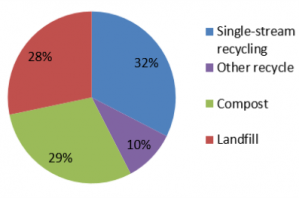College of Liberal Arts & Sciences

Food Waste
Why care about food waste?
University of Iowa's 20/20 goals include decreasing the production of waste to achieve 60% waste diversion by 2020. Reducing food waste is essential to reach that goal. According to 2012 Natural Resources Defense Council report, Americans trash 40 percent of our food supply every year, valued at about $165 billion. Just a 15 percent reduction of losses in the US food supply would save enough food to feed 25 million Americans annually. Reducing the food mass in our landfills would have significant economic, social, and environmental befits.

Results from University of Iowa's 2014 Waste Audit show that 29% of the University of Iowa's waste could be prevented by composting.
UI Dining compost efforts
In 2007, the University of Iowa and the Iowa City Landfill & Recycling Center began a pre-consumer food waste composting pilot project that has since grown into a University-funded program composting over 800,000 pounds of food waste each year. The original study and pilot were initiated by a student research project for Prof. Jerry Schnoor's class, Engineering for a Sustainable World.
When the compost is ready, some is returned to campus as a soil amendment for the Student Garden and the rest is sold to the public as one component of Iowa City Community Compost.
University Dining locations that practice pre-consumer composting include Burge, Catlett, and Hillcrest Market Places, as well as the IMU and seven UIHC dining locations. Pre-consumer composting means that kitchen staff collects inedible parts of food during their meal preparation (e.g., peelings, stems, bones) and places it in the compost bin.
University Dining locations that practice post-consumer composting include Burge, Catlett, and Hillcrest Market Places, as well as seven dining UIHC locations. Post-consumer composting means that food waste left over after someone finishes their meal is collected for composting.
How to compost
Reducing food waste at home
See Food: Too Good To Waste strategies from the City of Iowa City:
- Get Smart: See How Much Food (And Money) You Are Throwing Away
- Smart Shopping: Buy What You Need
- Smart Storage: Keep Fruits and Vegetables Fresh
- Smart Prep: Prep Now, Eat Later
- Smart Saving: Eat What You Buy
More resources